Filter by
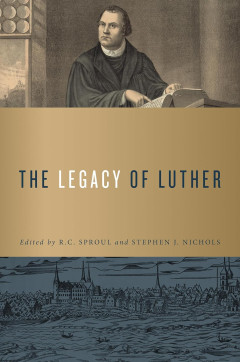
The Legacy of Luther
Martin Luther was one of the most influential men of his day. When he posted a series of theses on the Castle Church door in Wittenberg, Germany, he was merely inviting debate. He set off something much larger. The Protestant Reformation that began with his posting of the Ninety-Five Theses reshaped Europe, redirected Christian history, and recovered the truth of God’s Word. Five hundred year…
- Edition
- -
- ISBN/ISSN
- 9781567697100
- Collation
- Hardcover; 314 hlm.; 15.5 x 23.5 cm
- Series Title
- -
- Call Number
- 284.1092
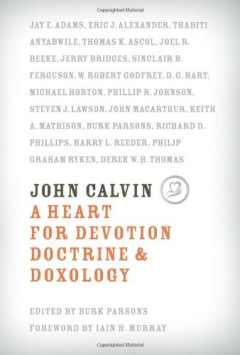
John Calvin: A Heart of Devotion, Doctrine, and Doxology
John Calvin's name evokes powerful images, most of them negative. In the minds of many, he is perceived as an ivory-tower theologian who was harsh and unreasonable, the driving force behind a dangerous theological system. In this volume, Burk Parsons and eighteen other leading Reformed pastors and scholars authoritatively reveal the truth about Calvin and his teaching - that he was humble, cari…
- Edition
- -
- ISBN/ISSN
- 9781567691061
- Collation
- Hardcover, 257 hlm, 16 x 23 cm
- Series Title
- -
- Call Number
- 284.2092
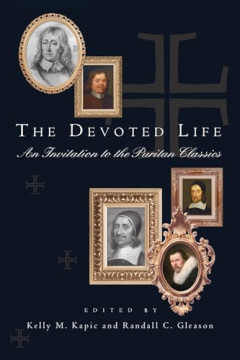
The Devoted Life: An Invitation to the Puritan Classics
The Puritans are frequently maligned but seldom understood. Far from the dour malcontents they are often portrayed to be, most Puritans were wholesomely engaged in life. This book is designed to introduce you to a wide range of influential Puritan writers and a representative work for each that pushes through stereotypes to the heart and soul of these Christian pastors and theologians. With a c…
- Edition
- -
- ISBN/ISSN
- 9780830827947
- Collation
- Softcover; 318 hlm.; 15.54 x 23.11 cm
- Series Title
- -
- Call Number
- 285.9
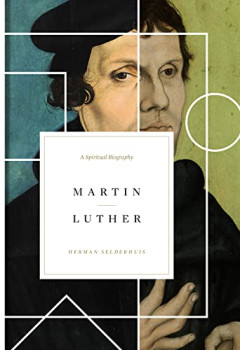
Martin Luther: A Spiritual Biography?
Famous for setting in motion the Protestant Reformation, Martin Luther is often lifted high as a hero or condemned as a rebel. But underneath it all, he was a man of flesh and blood, with a deep longing to live for God. This biography by respected Reformation scholar Herman Selderhuis captures Luther in his original context and follows him on his spiritual journey, from childhood through the Re…
- Edition
- -
- ISBN/ISSN
- 9781433556944
- Collation
- Hardcover; 347 hlm.; 16 x 24 cm
- Series Title
- -
- Call Number
- 284.1092
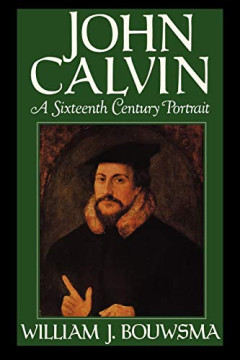
John Calvin: A Sixteenth Century Portrait
Historians have credited—or blamed—Calvinism for many developments in the modern world, including capitalism, modern science, secularization, democracy, individualism, and unitarianism. These same historians, however, have largely ignored John Calvin the man. When people consider him at all, they tend to view him as little more than the joyless tyrant of Geneva who created an abstract theol…
- Edition
- -
- ISBN/ISSN
- 9780195059519
- Collation
- Softcover; 310 hlm.; 15.60 x 23.72 cm
- Series Title
- -
- Call Number
- 284.20924
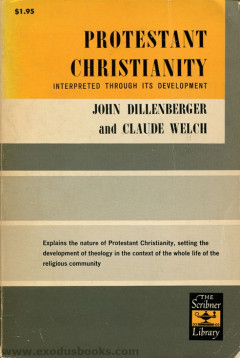
Protestant Christianity, Interpreted Through Its Development
This book is an essay in the interpretation of Protestant Christianity. It has grown out of conviction that the nature and meaning of Protestantism can be seen only in the light of historical development. We have, therefore, deliberately abandoned many of the usual patterns for interpreting Protestant life and thought. Survey descriptions of the various Protestant denominations almost invariabl…
- Edition
- -
- ISBN/ISSN
- 9780023296017 / 0023296011
- Collation
- Softcover; 352 hlm.; 13.5 x 20.2 cm
- Series Title
- -
- Call Number
- 280.4
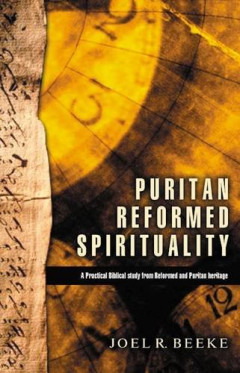
Puritan Reformed Spirituality:
- Edition
- 1
- ISBN/ISSN
- 9780852346297 / 0852346298
- Collation
- Softcover; 475 hlm.; 14.88 x 22.4 cm
- Series Title
- -
- Call Number
- 285.9
- Edition
- 1
- ISBN/ISSN
- 9780852346297 / 0852346298
- Collation
- Softcover; 475 hlm.; 14.88 x 22.4 cm
- Series Title
- -
- Call Number
- 285.9
 Computer Science, Information & General Works
Computer Science, Information & General Works  Philosophy & Psychology
Philosophy & Psychology  Religion
Religion  Social Sciences
Social Sciences  Language
Language  Pure Science
Pure Science  Applied Sciences
Applied Sciences  Art & Recreation
Art & Recreation  Literature
Literature  History & Geography
History & Geography